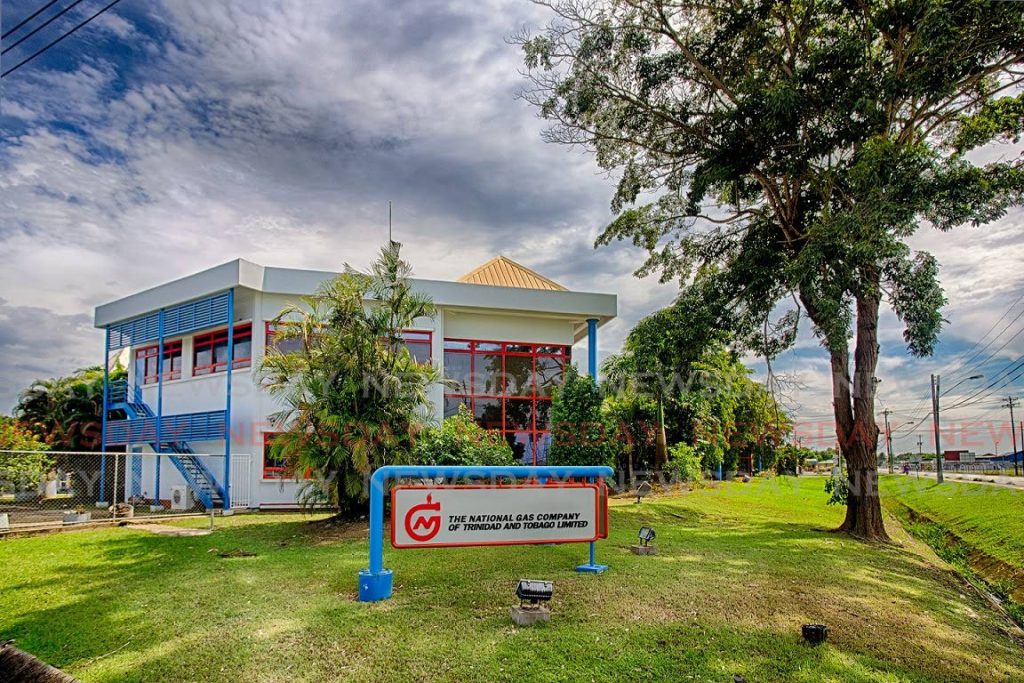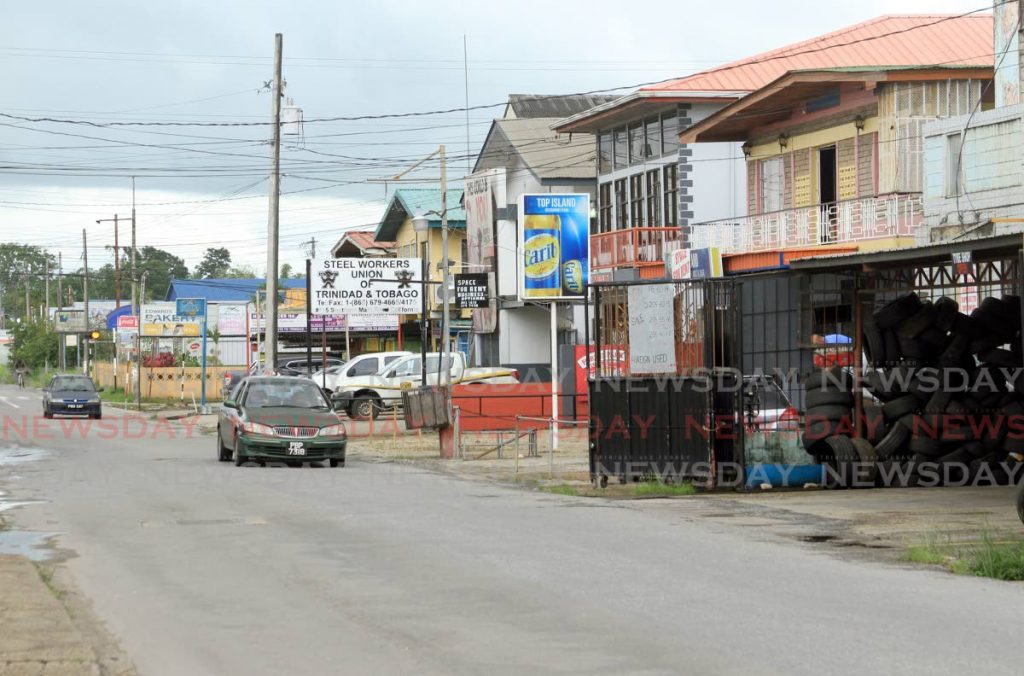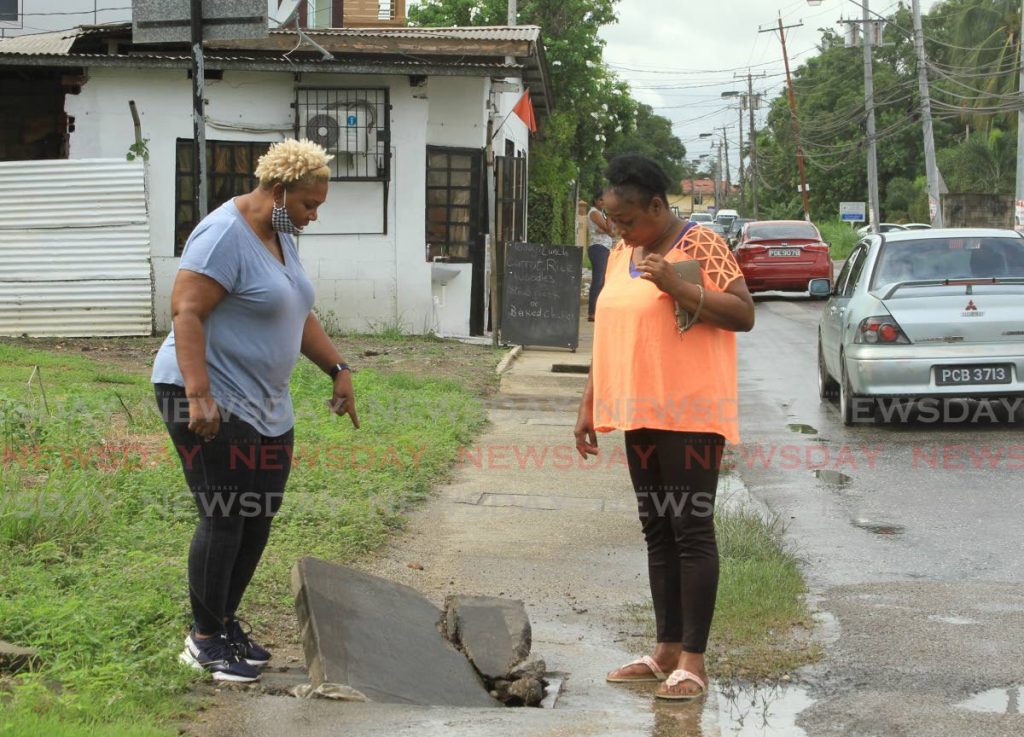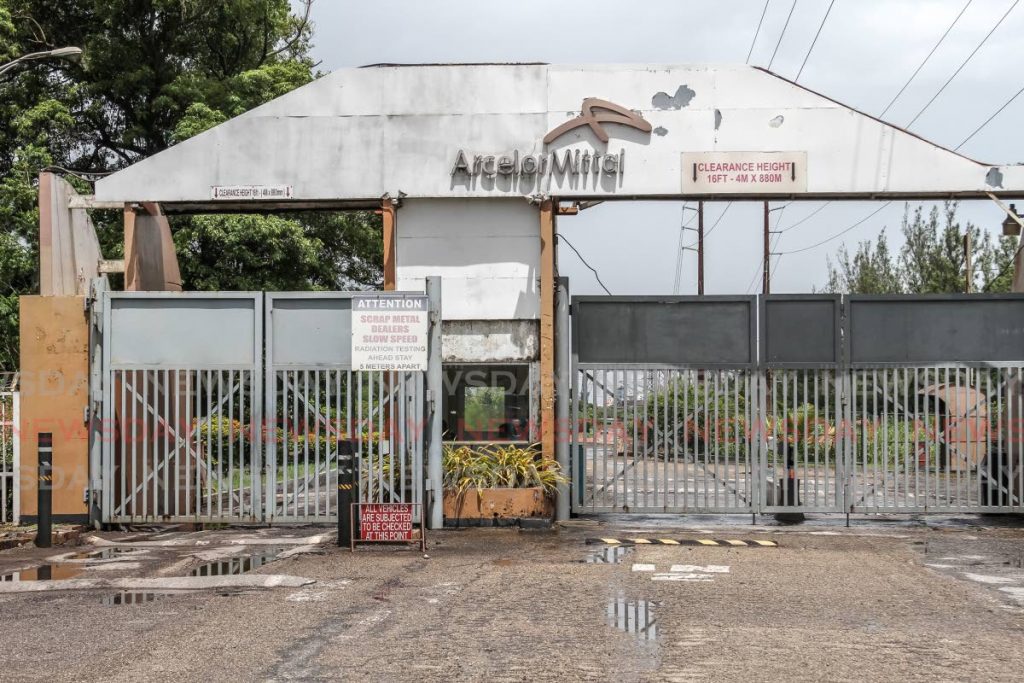Central slips into depression

The Point Lisas Industrial Estate has been an important staple in the country’s revenue generation with real major economic injections starting in the 1970s. It has been home to about 100 national and international companies in the petro-chemicals, chemicals, oil and gas, power generation and allied sectors.
The global economic downturn has however contributed to significant changes in the operations of the estate, with even some companies such as ArcelorMittal and Central Trinidad Steel Ltd (Centrin) closing up shop and moving out. Together both companies terminated nearly 1,000 employees in 2016.
Other companies such as Yara Trinidad announced in December 2019 their plans to shutter due to economic shortcomings and unfavourable global ammonia prices. Nutrien, Methanex and Methanol Holdings (Trinidad) Ltd meanwhile have idled some of their plants until further notice.
An Independent Commodity Intelligence Service (ICIS) report for the 2020 second quarter stated that the Canadian company Nutrien has undergone major setbacks due to weak global prices.

The report said, “Nutrien set a bearish tone in early May with a minimum 12-week shutdown of one its four 600,000 tonne/year units at Point Lisas in Trinidad.
“The move was in response to weak international prices and relatively high natural gas costs, with the delayed restart of a second Nutrien plant after an unscheduled shutdown in mid-June reducing further the island’s export availability.”
Additionally, the pressure continues to build on the companies as a new challenge of the covid19 pandemic poses serious risks on their operations.
Last updated in April, the World Bank's Commodity Markets Report (http://pubdocs.worldbank.org) stated that “mitigation measures have significantly reduced transport, causing an unprecedented decline in demand for oil, while weaker economic growth will further reduce overall commodity demand. Energy prices are expected to average 40 per cent lower in 2020 than in 2019 but see a sizeable rebound in 2021.”
Lifeblood of a community
For the small community of California and its environs, the success of the estate is crucial for the people there – the entrepreneurs, the contractors and third-party workers, just to name a few.
The once vibrant and active community has dwindled causing many small businesses and entrepreneurs to question the viability of their businesses. Small entrepreneurs such as food vendors, parlours, bars, clothing and apparel shops have had to close or faced negative impact on their incomes.
After nearly a decade of slowdown, starting with gas curtailments at the estate in the early 2010s, at the start of 2020, there was a further shock to the system when the global covid19 pandemic hit. TT began to put measures in place to combat the spread of the virus, virtually shutting down the country, closing schools, bars, food and entertainment establishments, closing the borders to non-nationals and commercial travel and limiting business activity only to "essential workers."

Due to the large number of workers on the estate, food establishments and bars were important in the area. There were many mom-and-pop food outlets, doubles vendors, and even a food court at Atlantic Plaza, which also houses franchises such as Church’s Chicken, Pizza Boys and Rituals. Close by is also Subway and KFC.
The owners of small food outlets said their businesses declined significantly prior to the covid19 restrictions and now worry about further blows to their incomes.
Owner of Enaiz Big Bites Kenny Mohammed, 33, said the closure of several plants a few years ago was the starting point for a constant decline. He said he feared having to close-up shop too.
“In 2016 we started to see a decline. We started with about a ten per cent decline but shortly after that things picked back up and remained stable for a little while.
“It was stable until February 2020 when the government started taking precautionary measures for covid19. When businesses were eventually allowed to re-open, we were operating at 25 per cent,” Mohammed said.
The food kiosk, which has operated for the last seven years at the Atlantic Plaza food court, has had to downsize its staff. It is now run by Mohammed, his wife and one worker. It previously employed six people and half of them lived in the community.
“I employed people from the area but have had to let them go because I could not afford it. It has been very difficult to meet the bills and income has been cut by half.
“I could not even make the rental fee but luckily the landlord gave us some time and that helped us out a bit. But even now we still have to ask for time to pay.”

Mohammed said he did not apply for any government financial assistance because the negative feedback from other small business owners about the application process was a deterrent.
Business Day recently spent a day chatting with several people along Southern Main Road in California, the Couva Main Road, Phoenix Park and Esmeralda Village, who expressed frustration and sadness over the loss of income and a failing community.
A 66-year-old community stalwart, also named Kenny Mohammed, said the area has lapsed into an economic depression. He has been selling oysters almost every evening for years.
“If there are no workers around then the small businesses obviously cannot survive. The roads are not nice and well, there is no up-keep of the very few grounds in the area. The ones which are owned by companies are kept well but we cannot use it because it is privately-owned,” he said.
“Sport and family activities are important for people, it helps with development and community togetherness, but we do not have facilities to promote this.”
Parliamentary and local government representation, Mohammed said, was poor.
“Well, that is chaos. We only see them for elections, and this happens throughout TT. We only see them then and after that they don’t come around and look for anyone or hear our concerns or help us.”

Apart from maintaining livelihoods and job creation, several people said California lacks infrastructure. Proper roads and recreational facilities were among the top items on the urgently needed list.
Long, winding road to recovery
Former energy minister Kevin Ramnarine forecast a long and winding road to recovery for the estate but said the global decline of the market price for ammonia has put a dent in any significant comeback.
“The issues with the estate will persist for as long as prices of ammonia and methanol stay under US$200 per tonne. The solution is to lower the price of natural gas to the plants on the Estate. The National Gas Company (NGC) has already started talks with one of its suppliers to effect this. I don't know if that will make a difference," he said.
Energy Minister Franklin Khan had noted in the Parliament in June that Government was looking to renegotiate upstream prices and confirmed those new deals at the Petrotrin land distribution ceremony in July. Upstream producers sell to the NGC, which in turn sells to the downstream sector. More competitive upstream prices would then translate to more competitive downstream prices – and hopefully soon.
If not, the estate's tenants may have to make some tough decisions. “In the next couple of months, we could see more closures specifically, Tringen 1 and MHTL's M5000. I hope this can be averted,” Ramnarine said.
UWI economist Dr Marlene Attz said revitalising the estate is going to be difficult and it cannot be business as usual, as gas prices hinge on NGC and their response to the global market prices.
She said, “A lot of the sustainability and economic viability of some of the companies hinge on what happens at NGC. NGC cannot be divorced from the national conversation.
“NGC’s significant role in the national economic space and how it responds to the market prices can have a knock-on effect on some of the companies.”
Attzs noted that the fence-line communities will continue to be greatly affected and at differing levels, as there has been a long history of employment associated with the companies in that area.
“The resilience of the communities now have to be looked at. Moving forward, do they have the skillset to be employed elsewhere, even at a time where the economy is fairly subdued.
“Finding employment is not an easy thing and the first question is at what extent their skill can be transferred to another sector.

“The big picture of what has happened to the companies and the impact on larger, macro-economic space, also has knock-on impacts on the secondary level. Because there are tiers to these impacts and what might be happening at the household level might escape us because we are looking at the big picture only,” she said.
Attzs added that governments have failed in diversification of the economy, which is desperately needed at this time to generate revenues.
“Our revenues are going to be further depleted and coming out of covid19 the projections that we have is a tripling of the budget deficit – about $15 billion. Governments have a responsibility and there must be collaboration. What is happening in TT is an exogenous shock, and there is not any particular group that has caused oil prices to become depressed,” she said.
Attzs noted that the recovery will be painful, but equity should be ensured and promoted in policies and related activities.
Bi-partisan collaboration needed
Rudranath Indarsingh who is entering in his third term as parliamentary representative for Couva South, under the UNC, said he is hoping that the government realises that collaborative efforts are needed for the survival of the estate.
He told Business Day that all stakeholders, including the Opposition, need to sit down to draft the way forward or else it will be doom and gloom.

“The key players on the estate are state entities and companies guided by national policies. The price that natural gas is being sold has resulted in eight plants being mothballed and which has resulted in unemployment, unless there is a change in government policy. Stakeholders at all levels will only benefit from an aggressive and decisive policy as it relates foreign direct investments and diversification of the economy. We hope the government will be willing to engage the Opposition and use some ideas from its national economic plan to go forward.”
Indarsingh added that there is little optimism from the small and medium-sized businesses in the community about their survival. With the impact of covid19 what little hope they had had dwindled.

He said the constituency of Couva South continues to be starved for funding to have basic amenities.
“People were not able to the relief grants that were put in place for the covid19 pandemic. The Couva/Tabaquite/Talparo regional corporation continues to lack funds to function. Recreational grounds are in a state of disrepair. The condition of the roads is woeful, and drainage is a problem.
“When I speak out people try to paint a narrative that I’m being an obstructionist but the PNM agenda is very focused. The reality is that the PNM is a party that governs for their well-being or where they have political support.”
Indarsingh said despite the challenges the people of Couva South and environs were resilient but awaited government’s intervention to revitalise the estate and the businesses and livelihoods that depend on it.


Comments
"Central slips into depression"